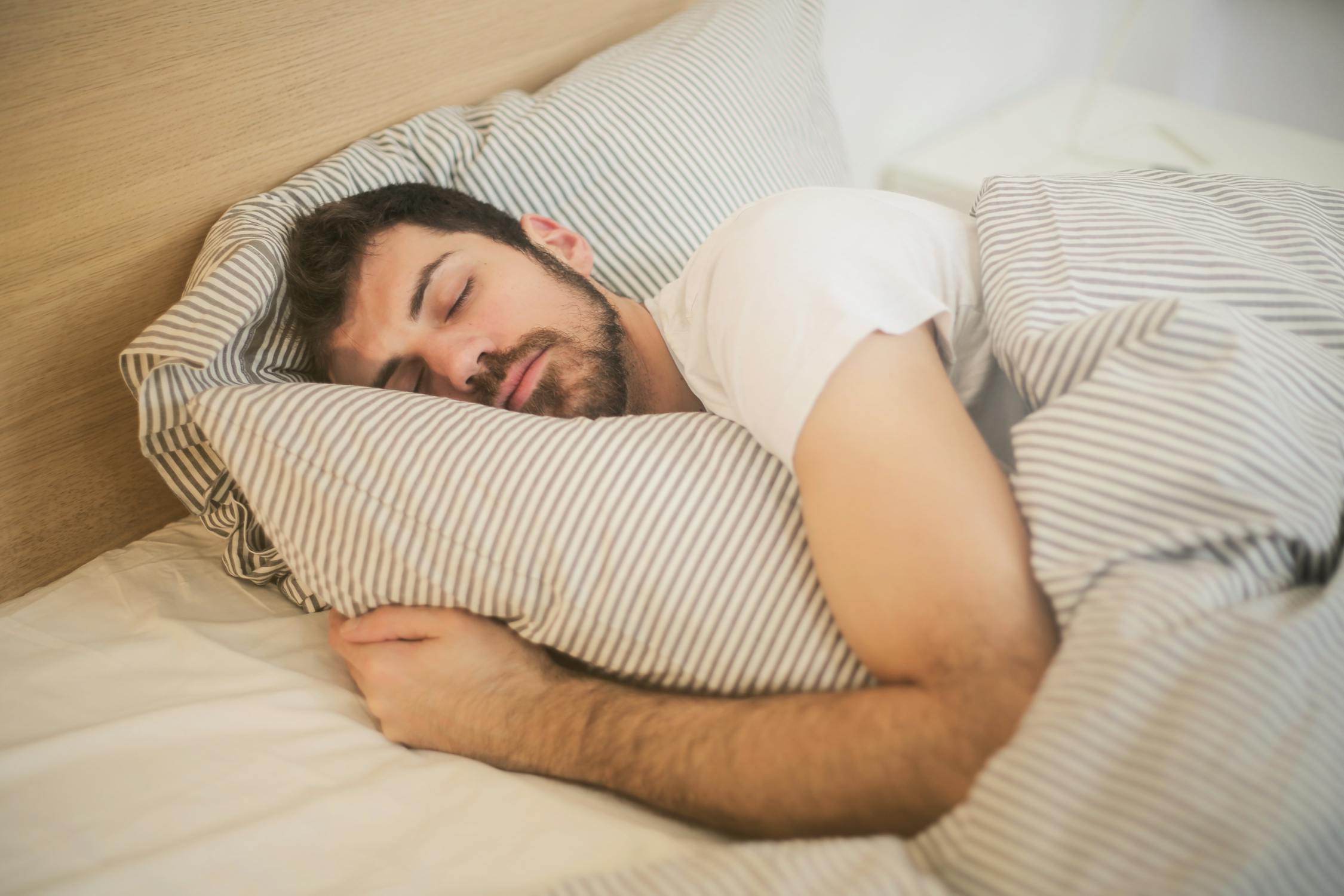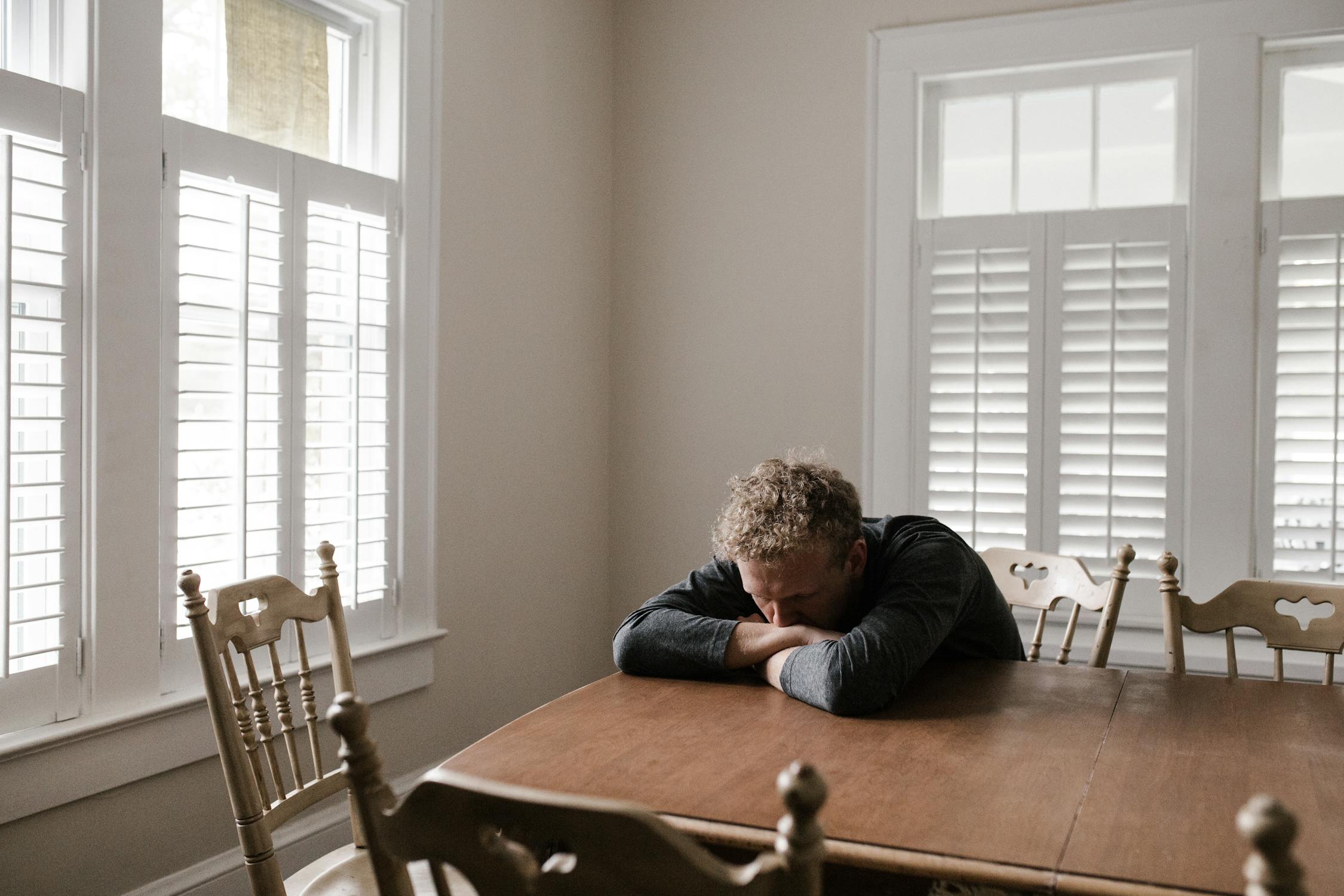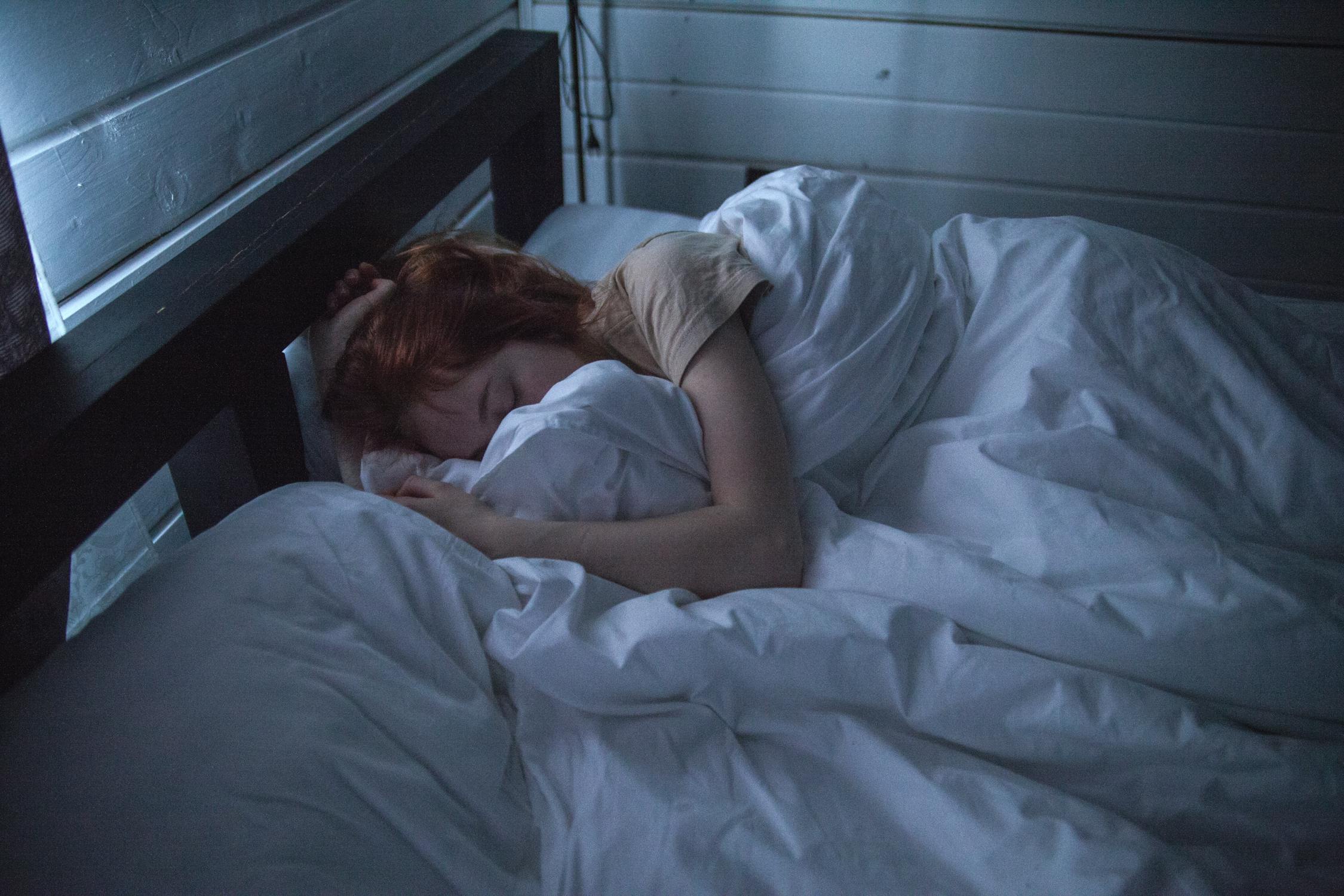The Link Between Sleep and Mental Health
Introduction
Before we dive into the specifics of this topic, let's first talk about the importance of sleep for our overall health and well-being.
We all know that feeling well-rested and energized is essential for tackling the tasks and challenges of daily life. But did you know that sleep plays a crucial role in maintaining both physical and mental health? When we sleep, our bodies are able to repair and restore themselves, which is crucial for maintaining overall health and well-being.
In fact, numerous studies have shown that getting sufficient sleep can help to improve immune function, lower the risk of developing chronic diseases, and even improve cardiovascular health. On the other hand, chronic sleep deprivation has been linked to a range of negative outcomes, including weight gain, decreased productivity, and even an increased risk of accidents.
Now that we've talked about the importance of sleep for overall health and well-being, let's delve into the connection between sleep and mental health.
You may have noticed that after a night of poor sleep, you feel more irritable, anxious, or depressed. Or maybe you've experienced difficulty managing your emotions or coping with stress after a string of sleepless nights. This is because sleep and mental health are closely connected.
Research has shown that sleep deprivation can increase the risk of developing mental health conditions such as depression and anxiety, and it can also worsen the symptoms of existing mental health conditions. In addition, lack of sleep can impair cognitive function and decision-making abilities, making it more difficult to think clearly and solve problems.
On the other hand, getting sufficient sleep can help to improve mood, increase emotional resilience, and enhance cognitive function. In other words, sleep and mental health go hand in hand, and taking care of one can have a positive impact on the other.
The effects of sleep deprivation on mental health
In our last section, we talked about the connection between sleep and mental health. Now, let's delve into the specific effects of sleep deprivation on mental health.
One of the most significant effects of sleep deprivation is an increased risk of developing mental health conditions such as depression and anxiety. In fact, research has shown that people who suffer from chronic sleep deprivation are more likely to experience symptoms of these conditions, and they may also be at greater risk for developing them.
But why is this the case? Well, it's thought that sleep plays a crucial role in maintaining emotional balance and regulating mood. When we don't get enough sleep, our bodies and brains aren't able to function properly, which can lead to an imbalance of chemicals in the brain that are responsible for regulating emotions. This can lead to increased feelings of anxiety and depression.
It's important to note that the link between sleep and mental health is complex, and it's likely that both sleep disturbances and mental health conditions can contribute to each other. But the bottom line is that getting sufficient sleep is crucial for maintaining good mental health
Now, let's talk about the effect of sleep deprivation on our ability to manage emotions and cope with stress.
Have you ever noticed that after a night of poor sleep, you feel more irritable, anxious, or prone to emotional outbursts? This is because sleep plays a crucial role in regulating our emotions and helping us to cope with stress. When we don't get enough sleep, our ability to manage our emotions and handle stress effectively can be impaired.
Research has shown that people who suffer from sleep deprivation are more likely to experience negative emotions and have a harder time managing their emotions. They may also have a harder time coping with stress and may be more likely to become overwhelmed by it.
On the other hand, getting sufficient sleep can help to improve our emotional regulation and coping skills. When we are well-rested, we are better able to handle the challenges and stresses of daily life and maintain a positive outlook.
We all know that feeling tired can make it harder to think clearly and solve problems, but did you know that chronic sleep deprivation can actually impair cognitive function and decision-making abilities? Research has shown that people who suffer from chronic sleep deprivation are more likely to experience difficulty with tasks that require attention, memory, and decision-making skills.
But why is this the case? Well, it's thought that sleep is essential for consolidating memories and facilitating learning. When we sleep, our brains are able to process and organize the information we've learned throughout the day. Without sufficient sleep, our brains are unable to function properly, which can lead to impaired cognitive function and decision-making abilities.
It's important to note that the effects of sleep deprivation on cognitive function and decision-making abilities can be cumulative, meaning that the longer we go without sufficient sleep, the more pronounced these effects may become.
The role of sleep in maintaining mental health
Have you ever had a hard time trying to remember something important, only to realize that you completely forgot about it after a good night's sleep? It turns out, sleep plays a crucial role in helping our brains consolidate memories and facilitate learning.
Imagine your brain as a filing cabinet, constantly receiving new information and experiences throughout the day. During sleep, your brain goes through a process of sorting and organizing all of this information, filing it away in the appropriate folders for easy access later on.
In fact, research has shown that getting enough sleep can even improve your ability to learn new information and solve problems
After a bad night's sleep, do you ever feel like you're just not operating at your best? It's not just you. For the brain to work properly and for emotional control, enough sleep is essential.
Consider the fact that you can think more clearly, make better choices, and manage stress more effectively when you are well-rested. Contrarily, lack of sleep can result in irritation, poor judgement, and even a higher risk of mental health conditions including despair and anxiety.
Simply put, obtaining adequate sleep is crucial for preserving a sound mind and stable emotions.
In fact, sleep deprivation can make existing mental health issues like bipolar disorder, anxiety, and depression worse.
Consider the following scenario: on top of dealing with the difficulties posed by a mental health problem, you are also worn out and irritable because you haven't been getting enough sleep. It can be challenging to escape the cycle's viciousness.
The good news is that you can take steps to maintain your mental health while also getting better sleep. So keep your faith! You can obtain the rest you need and feel better overall with a little work and self-care.
Consider speaking with a healthcare practitioner or a mental health therapist if you are unsure about where to begin. They can assist you in creating plans and coping skills for managing your mental health condition and sleeping better.
Alternatively, you can keep reading since we'll discuss some tips for enhancing sleep quality in the part after this one.
Tips for improving sleep quality
One of the key factors in getting a good night's rest is establishing a consistent sleep schedule.Setting up a regular sleep pattern is one of the most important aspects of getting a good night's sleep.
But exactly what does that mean? A regular sleep routine entails getting up and going to bed at the same times every day, including weekends. Although it can seem like a minor adjustment, it can have a significant impact on how well you sleep.
Consider this: when you maintain a regular sleep schedule, your body develops accustomed to a routine and it is simpler to fall asleep and awaken feeling refreshed. Additionally, maintaining a regular sleep pattern might assist in regulating your body's natural circadian rhythm, which is also known as the sleep-wake cycle.
So, if you're having trouble sleeping well, try creating a regular sleep pattern. At initially, it could require some work, but the rewards are definitely worth it. You'll be better able to meet the demands of your daily life since you'll feel more rested and energized.
A bedtime routine is a series of activities that you do before going to sleep to help you relax and unwind. This can include things like reading a book, taking a warm bath, or listening to calming music. The key is to do activities that you find relaxing and enjoyable.
But why is a bedtime routine so important? When you have a relaxing bedtime routine, you're telling your body and mind that it's time to wind down and prepare for sleep. This can help you relax and fall asleep more easily.
Avoid using screens right before bed. Yes, screens, including those on TVs, laptops, cellphones, and tablets, can disrupt your sleep.
Here's why: the blue light from screens might inhibit the release of melatonin, which makes it more difficult for you to fall asleep. Additionally, engaging stuff on displays like social media, email, and thrilling movies can keep your brain engaged and hinder your ability to unwind.
So what can you do to prevent these screens from disturbing your sleep? Consider making your bedroom a "screen-free" area at least an hour before going to bed. This means no tablets, smartphones, laptops, or TVs. Instead, consider relaxing activities like taking a warm bath, reading a book, or listening to quiet music.
While breaking the habit of using devices right before bed may be challenging, the rewards are worthwhile. Better sleep will result in a more refreshed and productive day for you.
Stress is one of the most typical reasons of insomnia and can make it hard to get to sleep and stay asleep.
The good news is that you can take steps to reduce stress and get better sleep. One of the best strategies is to practise relaxation methods like progressive muscle relaxation, deep breathing, or mindfulness meditation.
These methods can assist you in relaxing your body and calming your thoughts, which will make it simpler for you to get to sleep and stay asleep. Additionally, regularly using relaxation techniques might help you lower stress and enhance your general wellbeing.
So keep trying if you're having trouble with stress and sleep! You can take steps to make your circumstances better. Try some relaxation exercises and look for additional stress-reduction strategies, such regular exercise, a balanced diet, and talking to a mental health professional.
You can enhance your sleep and feel better all around with a little work and self-care. Therefore, don't be afraid to start feeling better; your body (and mind) will appreciate it.
A few suggestions for tools that could enhance the quality of sleep
White noise machine: These devices produce ambient sounds, like the sound of rain or waves crashing, which can help drown out any external noises that may be disrupting your sleep.
Weighted blanket: Weighted blankets can provide a feeling of comfort and security, which can be helpful for people who have trouble falling asleep.
Adjustable bed: An adjustable bed can allow you to customize the angle of your head and feet, which can help reduce snoring and improve circulation, leading to a more restful sleep.
Mattress topper: A mattress topper can add an extra layer of comfort to your bed, helping you sleep more soundly. Memory foam or latex toppers are popular choices.
Sleep mask: A sleep mask can help block out light, which can be especially helpful for people who have trouble sleeping in a brightly-lit room or who work night shifts.
Medicines: such as
A hormone called melatonin is generated by the pineal gland in the brain. It helps to regulate the body's sleep-wake cycle and plays a role in the body's internal clock. During the day, melatonin levels are lowest and are highest at night.. It can also be taken as a supplement to help with insomnia, jet lag, and other sleep disorders. Some study shows that it may have other health benefits such as antioxidant and anti-inflammatory effects. However, it is recommended to talk to a doctor before starting to take any supplement, especially if you are pregnant, breastfeeding, or taking other medications.
Conclusion
In conclusion, it is obvious that sleep and mental health are related. Maintaining good mental health requires getting enough excellent sleep, and getting inadequate sleep can be detrimental to our mental health. It's crucial to address your sleep problems and, if required, get assistance. This may entail making lifestyle adjustments, such as adopting a regular bedtime and sleeping schedule, or obtaining medical attention. Maintaining a healthy sleep schedule might benefit your entire mental health and well-being.




















